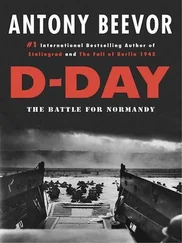Whoever was to blame for the fact that General d’Erlon’s corps arrived at neither the battlefield of Quatre Bras nor at Ligny on 16 June, at either of which it could have been decisive, must bear heavy responsibility for the loss of the campaign. History has still not precisely ascertained the guilty party. The fact that d’Erlon spent six hours marching between battlefields cannot wholly be put down to the General himself, who had little option but to obey the commands of the Emperor, Marshal Ney, or Marshal Soult, the chief of staff, but a little more initiative from him when he was within striking distance of either Ligny or Quatre Bras would have paid dividends. If Nelson could affect a blind eye to a signal, d’Erlon might just as easily have disobeyed the command to trek back across country until 9.30 p.m. without ever firing a shot in anger.
Napoleon certainly missed two important opportunities on Saturday, 17 June, in simultaneously allowing Wellington to retreat from Quatre Bras and in losing all connection with the Prussians as they escaped northwards to Wavre. Grouchy should probably not have been sent off to follow the Prussians at all, but if he was going to be, he needed to be despatched at daybreak, not in the afternoon, by which time the trail had gone cold. 6‘March together! Strike together!’ was a favourite military maxim of Napoleon’s; another was ‘An enemy should be outflanked, or enveloped, without separating one’s own force.’ 7These sensible rules of warfare were emphatically not adhered to by their author during Saturday, 17 and Sunday, 18 June 1815.
At Waterloo the French ought to have attacked Wellington’s position the moment that all their troops had arrived from Rosomme, breakfasted and cleaned their weapons after the previous night’s downpour. It is very doubtful that that cold, windless and largely sunless Sunday morning really dried the ground to any great degree for the artillery. Once again, it was simply time wasted. 8
When battle was joined before noon, and the Grand Battery’s eighty-four guns had opened up on the Anglo-Allied position, Grouchy ought to have immediately marched westwards towards the sound of them, as his subordinate General Gérard urged. Yet this would have been to disobey Napoleon’s direct orders, sent at only ten o’clock that morning, to march on Wavre. It is also unlikely that even if Grouchy had taken Gérard’s advice and marched towards Plancenoit he would have got there in time to affect the outcome of the battle, because he would have soon encountered the Prussian divisions of Pirch and Thielmann, which would have held up his advance, while those of Bülow and Zieten could have carried on to help Wellington. 9
On the battlefield itself, the French failure to use any artillery to batter and breach the walls of Hougoumont was a palpable error, as was the perhaps unimaginative divisional formation adopted by d’Erlon’s corps in its attack on the Anglo-Allied line. Napoleon and Ney’s decisions to attack with infantry under-supported by cavalry and artillery, and later with cavalry under-supported by infantry and artillery, must also be regarded — for whatever tactical reason they were made — as grave errors. (Equally, Uxbridge was gravely at fault for allowing his cavalry counterattack against d’Erlon so disastrously to overreach itself.)
The timing of Ney’s great cavalry charge is similarly open to criticism, as taking place too early and going on for too long after it had failed in its objective to overwhelm the Anglo-Allied infantry, which had formed into squares. If, as seems to be the case from the new evidence presented in Appendix II, the charge happened largely by accident, this cannot really be laid at Napoleon’s door. By the time the Imperial Guard was committed towards the end of the battle, Napoleon cannot be blamed for rashness; there was virtually no other choice for him at that stage. The Guard was well-supported, but it still adopted a columnar formation that the British Peninsular infantry had turned back again and again over six years of continuous campaigning.
It is easy enough to enumerate the errors made on both sides during the Waterloo campaign, yet the difficulties that the commanders were acting under ought to be recalled. Communications could go no faster than a man on horseback, and by the time messages arrived they could be out of date. Commanders could see no further than topography and telescopes allowed them — indeed one of Wellington’s wisest sayings was: ‘All the business of war, and indeed all the business of life, is to endeavour to find out what you don’t know by what you do; that’s what I call “guessing what was at the other side of the hill".’ Sometimes commanders even had to guess what was directly in front of them, since the huge quantities of thick smoke emanating from the constant firing of cannon and muskets could wreathe and envelop a battlefield, cloaking large areas in dense, impenetrable grey. Thus snap decisions had to be taken from sudden and partial glimpses of the scene.
It is important not to employ too much hindsight in retelling the battle of Waterloo, since otherwise it might seem simply like a catalogue of errors on both sides, the victory going to the one that made the fewest. In fact Napoleon’s preference for mass frontal assault rather than manoeuvre did make Wellington’s job easier, but however sturdy the Anglo-Allied infantry were en masse there were also desertions, even — as in the case of the Cumberland Hussars — of an entire regiment.
The French outnumbered their opponents at the opening of the battle, especially in artillery; they had been victorious two days earlier; they were a homogeneous national force; and their morale was high owing to their being commanded in person by a general they firmly believed to be the greatest soldier since Alexander. The battle was therefore by no means a foregone conclusion, especially when La Haye Sainte fell at around 6.15 p.m. Wellington was right when he opined that Waterloo had been ‘a damned nice thing — the nearest run thing you ever saw in your life … By God, I don’t think it would have done if I had not been there.’
Nearly 71,000 men were killed or wounded in the battle of Waterloo and its immediate aftermath, to which horrific toll must be added 2,600 casualties in frontier clashes on 15 June, the 32,500 at Ligny, 8,800 at Quatre Bras, 400 on the retreat from Quatre Bras and 5,000 at Wavre — making a total of 120,300. Nationally, the breakdown over the entire 15–18 June period was roughly as follows: French casualties 67,500; Prussian 30,000; and Anglo-Allied 22,800. Sergeant-Major Cotton recalled: ‘The field of battle, after the victory, presented a frightful and most distressing spectacle. It appeared as if the whole military world had been collected together, and that something beyond human strength and ingenuity had been employed to cause its destruction.’ 10Charles O’Neil wrote that ‘the groans of the wounded and the shrieks of the dying were heard on every side’. The pillaging of the corpses by local Belgian peasants, who, it was widely reported, were not above slitting the throats of the wounded the more easily to rifle their pockets, was a ghastly reality of the aftermath of the battle. O’Neil recorded how the morning after the battle ‘the mangled and lifeless bodies were, even then, stripped of every covering — everything of the smallest value was already carried off’. 11As Wellington himself remarked: ‘Next to a battle lost, the greatest misery is a battle gained.’
‘Every man meets his Waterloo at last,’ wrote the nineteenthcentury American moralist Wendell Phillips, and the phrase has indeed slipped into the English language to imply that there is a fate, an inescapable destiny, awaiting us all. Yet was this really the case for that ultimate Man of Destiny, Napoleon Bonaparte? His career had hitherto been a series of floutings of the supposedly immutable laws of Providence. Like that of the great Mithridates Eupator, King of Pontus a century before Christ, Napoleon’s life had been a tale of unlikely adventures that each seemed to herald disaster but which time and again were turned into victories.
Читать дальше
Конец ознакомительного отрывка
Купить книгу











